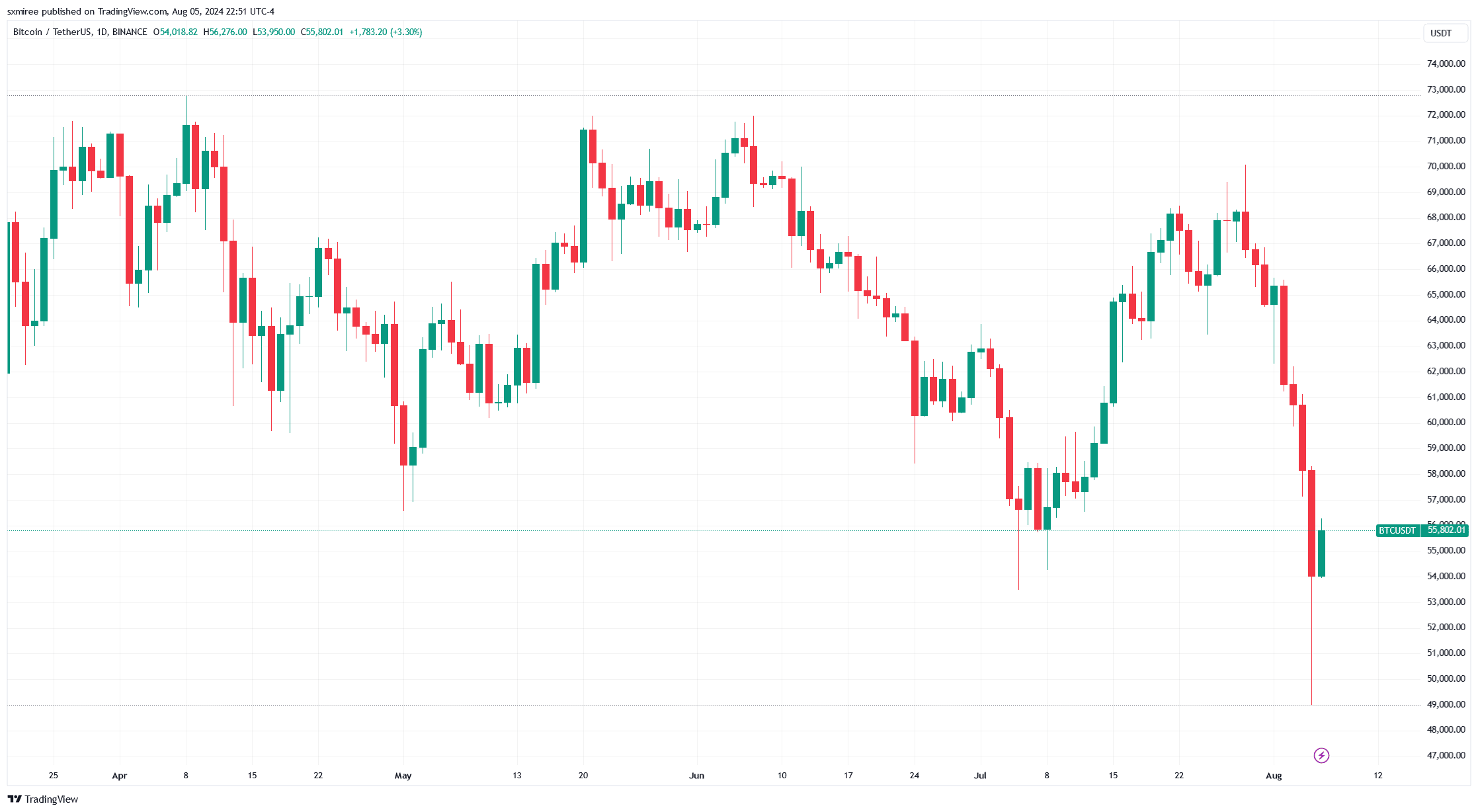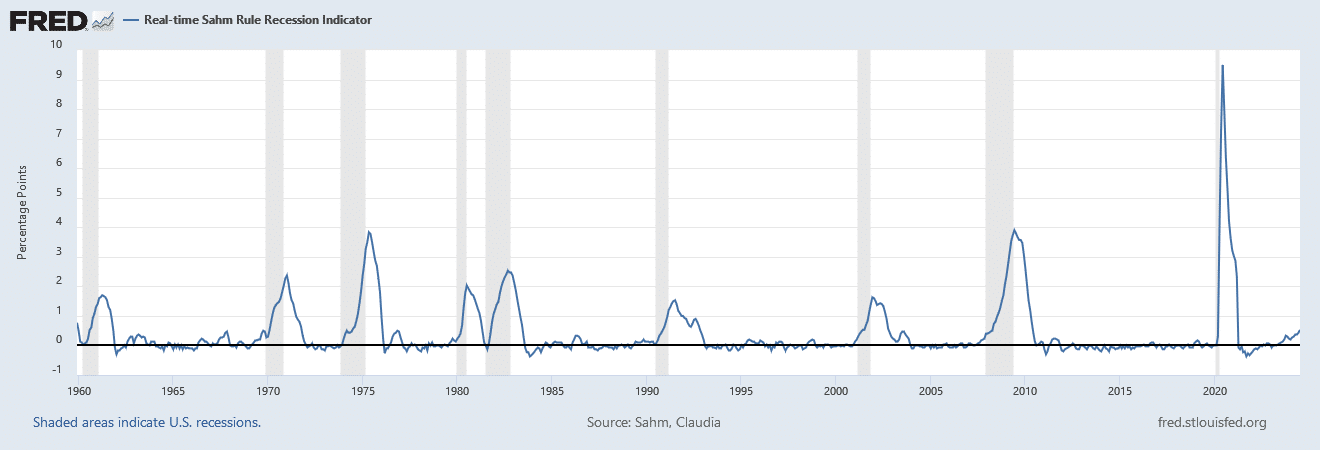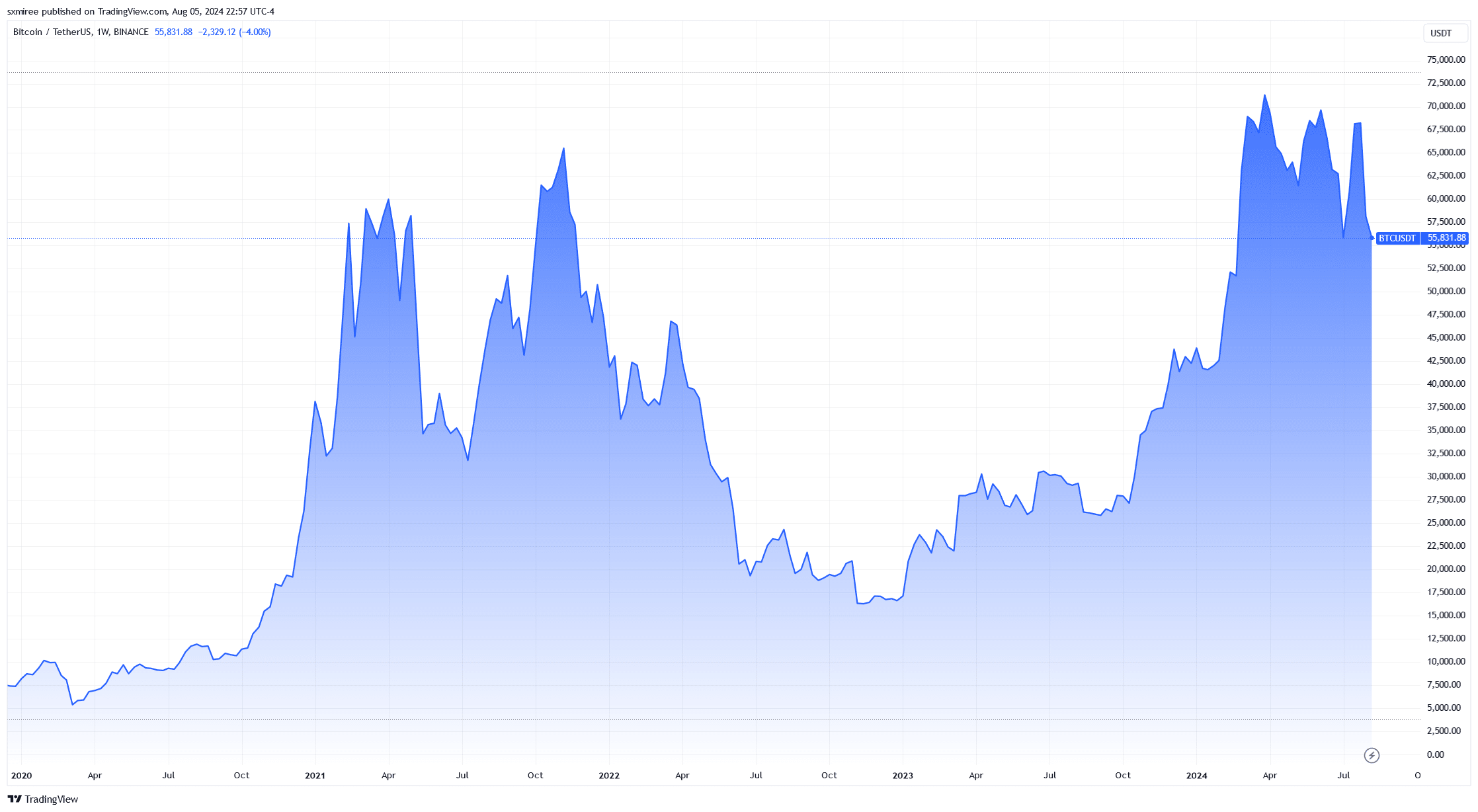- A looming US recession and the Bank of Japan's interest rate hikes were responsible for the recent market decline.
- The outcome of the US economic downturn presents contradictory scenarios for the cryptocurrency market.
Bitcoin [BTC] On Friday, August 2, other altcoins saw their prices plummet and the decline continued throughout the weekend. The flagship cryptocurrency dipped below $60,000 over the weekend and fell below a key support level on Monday, August 5.


Source: TradingView
Friday's stock market pullback was triggered by a weaker-than-expected U.S. jobs report released after market hours, which rippled through stock markets around the world.
Notably, this three-day sharp sell-off occurred less than a week after Bitcoin traded near its March all-time high on July 29, highlighting the impact macroeconomic factors can have on the crypto asset.
How a US recession could affect Bitcoin prices
Rumours of a US recession have persisted for the past year amid divided opinion on the state of the economy.
Disappointing employment data on Friday further spooked investors in the U.S. stock market and rekindled fears of an economic downturn.


Source: Sam, Fed of St. Louis
To make matters worse, geopolitical tensions are stoking uncertainty in the global economy, with ongoing conflicts in the Middle East and Ukraine further precariousing the economic situation of the United States, which is caught in both.
Here's how a possible recession could affect Bitcoin price in the current cycle.
Investor sentiment
In a recessionary environment, investor sentiment generally shifts towards risk aversion. Risk-averse market participants primarily adopt conservative asset allocations and prefer lower-risk instruments over more volatile assets such as cryptocurrencies.
Despite the appeal of a fixed supply, shifts in investor sentiment as investors opt to retreat to traditional safe-haven assets are likely to put pressure on Bitcoin prices.
Some market commentators have also suggested that a recessionary environment would cause Bitcoin to diverge from the stock market in the current cycle.
Economic downturns generally squeeze liquidity, making the situation even more challenging as market participants prioritize capital preservation. A downturn environment will reduce inflows into crypto assets, which will in turn put downward pressure on crypto asset prices.
Governments and financial regulators may decide to tighten regulations and implement new policies in response to the economic contraction. Historically, the cryptocurrency market has been sensitive to regulatory developments, and new regulations are likely to bring greater volatility.
Conversely, a downturn could prompt fiscal stimulus measures such as monetary easing and interest rate cuts. Market confidence is growing that the Fed will indeed cut interest rates by 0.5% in September, rather than the initial estimate of 0.25%.
Given the current market trends, Bitcoin will benefit from favorable macroeconomic conditions such as lower interest rates, increased liquidity and a weaker US Dollar.
Historical background
Historical data shows that Bitcoin market performance during periods of economic downtrends has been mixed, reflecting its simultaneous speculative and store of value characteristics.


Source: TradingView
When the Fed last cut interest rates in March 2020, Bitcoin traded below $7,000 but rose to as high as $60,000 over the following year.
In contrast to the Fed's decision on July 31 to keep interest rates unchanged at their highest level in 23 years, Japan's central bank tightened monetary policy on August 5.
The Bank of Japan raised its policy interest rate from near zero to 0.25%.
Future trajectory
While the immediate reaction to recession fears is bearish, it does not signal a negative trend in the long term. With most economic data coming out this week weak, market participants are now focused on the July CPI inflation report due out next week.
The big question is whether the U.S. can weather its current economic problems without sliding back into a deep recession, but market participants should keep a close eye on economic data and policy responses in the coming weeks.

